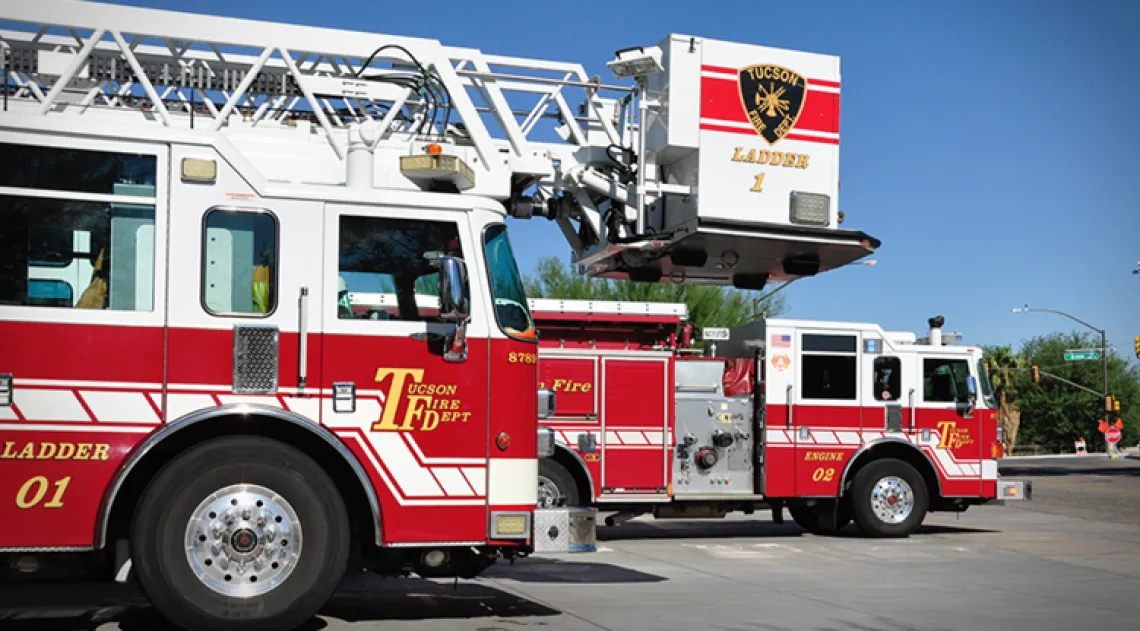Answering The Call, The Next Generation: Honors College Students Assist A Pioneering Emergency Response Initiative In Tucson, Arizona

The idea behind 9-1-1 prompted emergency services is solid. “Go where needed now, effectively and efficiently” could be the motto for agencies responding to urgent calls. But even within urgency are widely divergent degrees of need. Health and Human Values students from the University of Arizona are part of turning these distinctions into better, more focused care.
According to Dr. Victor Braitberg, an Honors College assistant professor, “(the Tucson initiative) is called TC-3 and it brings together local health-care and social-service communities to help those who frequently call 9-1-1 asking for help with things such as medications and social services, or simply asking for help getting up and down around their homes.”
A salient example, drawn from the experience of the Tucson Fire Department, pegs one person’s emergency response bills at over $140,000 for a single year. With each ambulance call-out costing nearly $1,200, moving less-critical needs elsewhere protects crew availability for true emergencies and may even decrease response times.
Two students have been integral parts of the TC-3 test effort. “Aaron Rabinowitz and Wyatt Snell are pre-meds who have assisted the program by creating several training and publicity materials that are being adopted by the program. They really bonded with the TC-3 (Tucson Collaborative Community Care) team and feel strongly that this is one of the most significant learning experiences they've had so far at the UA,” observed Braitberg.
Rabinowitz took the experience to heart, both in small and big ways. “Being forced to wake up at 7:00am twice a week, cleanly shaved and ready to go, despite whatever exams I had later that day or stresses I’d dealt with the night before, helped me develop greatly. I also learned to deal with criticism constructively, not destructively, for the first time. (I discovered) I want to further tailor my healthcare career toward those who need it most; the disenfranchised and isolated members of our society.”
Added Snell, “this internship was a once in a lifetime opportunity and I am truly grateful that I had the chance to be a part of something like the TC-3 team. I grew in every aspect; academically, professionally, and personally. I can confidently say that the time spent working at the working fire department will have a lasting impact, not only on my work as a future health care professional, but also as an individual.”
The impact of this project is consistent with what Health and Human Value students are experiencing, even apart from their majors. Catie Sikora, with double majors and minors, echoes the insight-provoking nature of her coursework and internship with the Alvernon Family Medicine Clinic.
“This internship, where I worked to improve vaccination rates in primarily low-income populations, solidified my beliefs on the importance of patient advocacy. (The faculty) push me to question my own work and beliefs, and to constantly seek the deeper meaning in everything I do. I am confident in my ability to place the needs, emotions, and values of my patients above anything else.”
If the progress and potential of these Honors College students is any indicator, the future of community health care is in the right hands. With hearts big enough to take on even the most daunting challenges.

